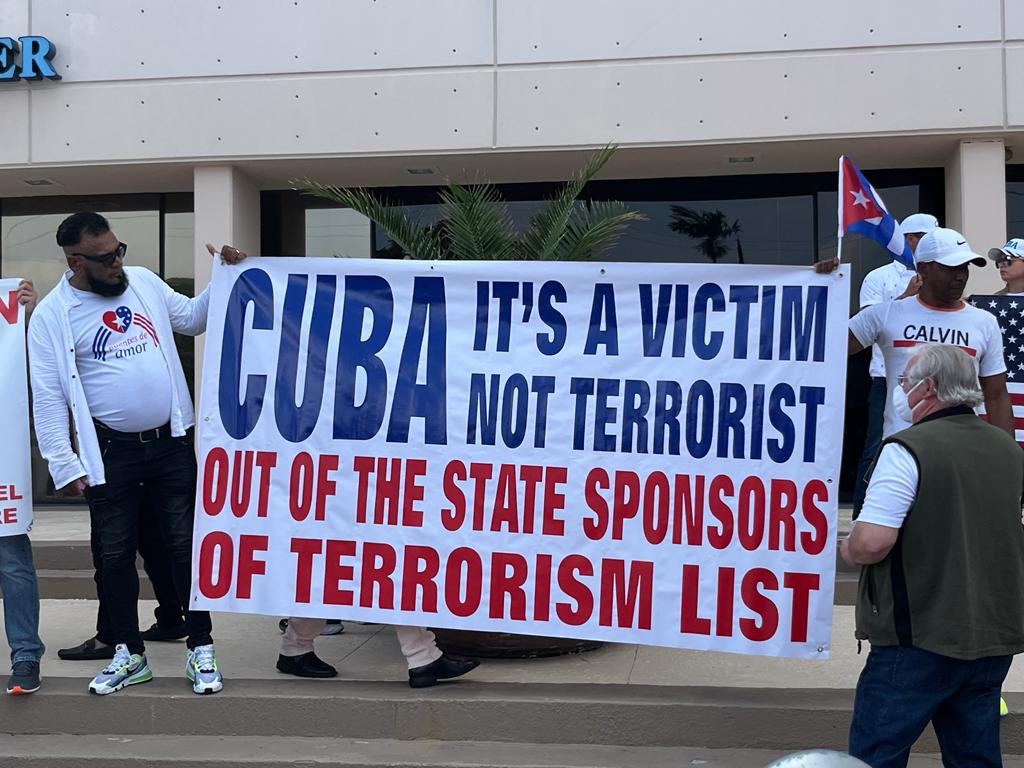|
7/21/2022 Cuba Should Be Removed from the U.S. List of State Sponsors of Terrorism. By: Roger Waters, Vijay Prashad and Manolo de los SantosRead NowThe United States maintains a list of countries that it considers as “state sponsors of terrorism.” There are currently four countries on that list: Cuba, North Korea, Iran and Syria. The basic idea behind this list is that the U.S. State Department determines that these countries have “provided support for acts of international terrorism.” Evidence about those “acts” are not provided by the U.S. government. For Cuba, there is not one shred of evidence that the government has offered any such support to terrorism activities, in fact, Cuba has—since 1959—been a victim of acts of terrorism by the United States, including an attempted invasion in 1961 (Bay of Pigs) and repeated assassination attempts against its leaders (638 times against Fidel Castro). Cuba, rather than exporting weapons around the world, has a long history of medical internationalism with Cuban doctors and medicines being a familiar sight from Pakistan to Peru. In fact, there is an international campaign for Cuban doctors to win the Nobel Peace Prize. Why would a country that floods the world with health care be targeted as a state sponsor of terrorism? Washington’s Vindictiveness Cuba was not on the state sponsor of terrorism list from 2015 onward, when President Barack Obama removed Cuba from that list (it was first added to the list in 1982 by President Ronald Reagan). In his last week in office, and days before Joe Biden was inaugurated to replace him, former President Donald Trump put Cuba back on the list on January 12, 2021. The comments made by then-U.S. Secretary of State Mike Pompeo provide a strange justification for this action: despite Cuba having been removed from the list in 2015, five years previously, Pompeo said that “[f]or decades, the Cuban government has fed, housed, and provided medical care for murderers, bombmakers, and hijackers.” The phrase “for decades” suggests that the Trump administration went back beyond 2015, not assessing the situation in Cuba during the five years since it was removed from the list but going back to an era before Obama’s action. There was no new evidence of anything having changed since 2015, which showed that Trump’s actions were purely political (to curry favor with the hard-right wing that continues to want to conduct regime change in Cuba and to nullify as many of Obama’s policies as possible). The United States has carried out a blockade against Cuba since 1959 when the Cuban Revolution began a process to transform the country that was ruled by gangsters (including the U.S. mafia) into a country that tended to the needs of its people. The revolution developed programs for literacy and health care and for building up the cultural confidence of the people long suppressed by Spanish and U.S. colonialism. The United States elite was eager to snuff out the example of Cuba, which showed that even a poor country could transcend the socioeconomic conditions of poverty. Each year since 1992, almost all the countries in the world—184 out of 193 at last count—vote in the United Nations General Assembly to condemn the blockade of Cuba. Remove Cuba From the List The designation of Cuba as a state sponsor of terrorism by the United States deeply harms the ability of the Cuban government and its people from carrying on with the basic functions of life. The immense power of the United States government over the world financial system means that banks and traders refuse to do business with Cuba since they are afraid of retaliation by the United States government for breaking the blockade. It is stunning to learn that because of this blockade, and despite the murmurs from the U.S. government about medical exceptions, firms refuse to sell Cuba raw materials, reactive agents, diagnostic kits, pharmaceutical drugs and devices, and a range of other materials necessary for operating Cuba’s excellent but stressed public science and health care system. U.S. President Joe Biden can remove Cuba from this list with a stroke of his pen. It’s as simple as that. When he was running for the presidency, Biden said he would even reverse the harsher of Trump’s sanctions and revert to the policies of the Obama administration. But he has not done so, which might be for reasons of political expediency. There is a streak of vindictiveness that runs through U.S. policies against Cuba, an island that proved during the pandemic that its revolutionary process cares for its people. The example of public health care in Cuba, despite being a small island nation, should be exported around the world. The country is not a state sponsor of terrorism but a state sponsor of global well-being. AuthorVijay Prashad is an Indian historian, editor and journalist. He is a writing fellow and chief correspondent at Globetrotter. He is the chief editor of LeftWord Books and the director of Tricontinental: Institute for Social Research. He is a senior non-resident fellow at Chongyang Institute for Financial Studies, Renmin University of China. He has written more than 20 books, including The Darker Nations and The Poorer Nations. His latest book is Washington Bullets, with an introduction by Evo Morales Ayma. This article was produced by Globetrotter. Archives July 2022
0 Comments
Leave a Reply. |
Details
Archives
July 2024
Categories
All
|

 RSS Feed
RSS Feed